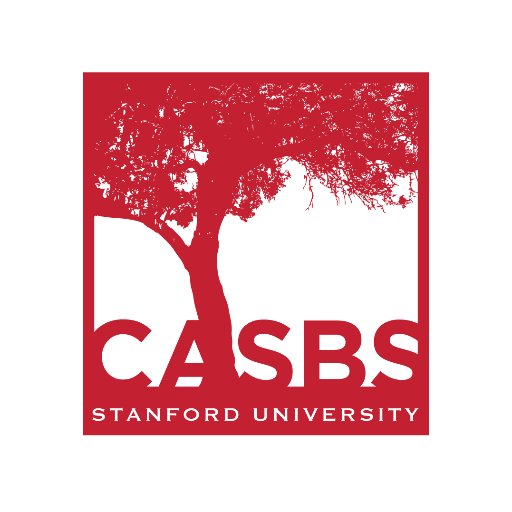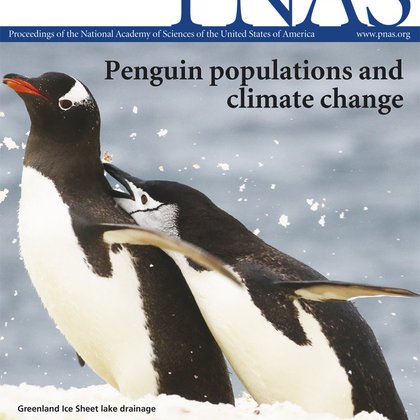
Christopher Bryan
@chrisjb1
Followers
236
Following
58
Media
2
Statuses
26
Social psychologist, field experimentalist, father to an unreasonable number of children, most of whom are 8.
Austin, TX
Joined October 2009
In a new @Nature paper, #BCFGTeamScientists David Yeager, @chrisjb1, James Gross, and colleagues demonstrate that a short, low-cost mindset intervention buffers the negative effects of stress among adolescents. https://t.co/7aT0GWX4TB
0
1
5
How can you help your stressed teen cope? A @nature paper presents a new, 30 min intervention that reduces perceived and physiological stress in multiple groups of highschool and undergraduate students
0
10
35
I can’t count the number of times @davenuss79 has helped me come up with just the right framing for a media pitch about one of my papers or op-Ed ideas. He has contacts at top media outlets and an insider’s feel for how to get them interested in academics’ ideas.
I'm incredibly thrilled to announce that today @psychgeistmedia is officially open to the public! We've been working toward this for a long time and we're incredibly grateful to everyone who has helped us along the way. Come see: https://t.co/LwswLkinUU
0
1
3
This is what lunch prep looks like with 5 kids. Ugh, I really need to get more reusable containers.
0
0
5
You, too, could find yourself in gauzy beauty shots of the CASBS campus that also vaguely convey stimulating intellectual interaction... THE PORTAL IS OPEN. APPLY FOR A 2022-23 CASBS FELLOWSHIP. Deadline: Nov. 5, 2021. Go here: https://t.co/pkMoNYvalq
0
6
13
1
0
0
This is one example of why it’s critical that we begin to take heterogeneity more seriously in our research as @stats_tipton, David Yeager, and I argue here: @https://rdcu.be/cpu1A
0
0
3
They later tried to replicate the finding in a subsequent year and found more equivocal evidence: https://t.co/O0Q70FMPEu . To me, this suggests the effect may be real but heterogeneous.
oes.gsa.gov
What was the challenge?. Federal vendors making sales through the Federal Supply Schedules are required to pay a fee—the industrial funding fee (IFF)—that co...
0
0
0
The revelation on @DataColada about fraud in the Shu et al paper seems incontrovertible but it’s worth noting that there is one legitimate demonstration of the effectiveness of the sign-at-the-beginning nudge from @USGSA’s OES: https://t.co/g4ZfTmguHY (1/2)
oes.gsa.gov
What was the challenge?. Federal vendors making sales through the Federal Supply Schedules are required to pay a fee—the industrial funding fee (IFF)—that co...
4
1
3
Let's move beyond the replicability crisis NEW PAPER: In @NatureHumBehav, fmr CASBS fellows @chrisjb1(2018-19) & David Yeager (2014-15) & Beth Tipton propose steps for a shared research infrastructure for studying behavioral interventions in heterogeneous & generalizable samples
Behavioural science is unlikely to change the world without a heterogeneity revolution. That revolution is coming, @stats_tipton, David Yeager, and I argue in a new paper out today in @NatureHumBehav. Check out the paper here:
0
1
3
Behavioural science is unlikely to change the world without a heterogeneity revolution. That revolution is coming, @stats_tipton, David Yeager, and I argue in a new paper out today in @NatureHumBehav. Check out the paper here:
1
15
68
2019 highlights This paper fueled a TON of conversation in July & (thoughtful) arguments over it are still going strong! Want to weigh in? The paper in question is now published HERE: https://t.co/XZn03N8CV1
@PNASNews @chrisjb1 #replication
pnas.org
In recent years, the field of psychology has begun to conduct replication tests on a large scale. Here, we show that “replicator degrees of freedom...
How big a problem is replicator degrees of freedom? CASBS fellows Chris Bryan & David Yeager show that common #replication practices allow authors to publish attention-grabbing “failed replications” even when they actually DID replicate the finding PAPER: https://t.co/VXtZK1thrO
0
1
2
How big a problem is replicator degrees of freedom? CASBS fellows Chris Bryan & David Yeager show that common #replication practices allow authors to publish attention-grabbing “failed replications” even when they actually DID replicate the finding PAPER: https://t.co/VXtZK1thrO
4
32
58





